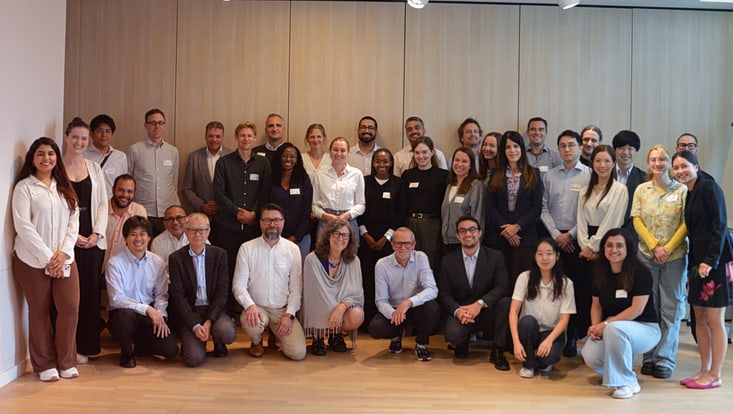and Society (CLICCS)
Reviewing 30 years of Literature on Corporate Responses to Climate ChangeThree academic researchers in the CLICCS B4 (D°GREES) project conducted a systematic literature review relating to corporate responses to climate change with a focus on deep decarbonization.
15. Dezember 2021

Foto: UHH/Denstorf
Three researchers, Dr. Matthew Johnson, Brigitte Frank, and Theresa Rötzel, members of the project D°GREES (Decarbonization: Global Research on Effects in Enterprises and Societies) as part of the Cluster of Excellence "Climate, Climatic Change, and Society" (CLICCS), have systematically reviewed the literature on corporate responses to climate change with a focus on deep decarbonization. The research project has categorized the literature according to four themes, including external and internal drivers of corporate responses, actual corporate responses via corporate mitigation measures and activities, barriers impeding effective responses, and facilitating criteria to overcome these barriers.
The review suggests that the drivers, measures, barriers, and facilitators are sufficiently covered in the literature focused on corporate responses to climate change. Several main drivers include institutional drivers, such as governmental regulations and policies (e.g., emission trading schemes), organizational drivers (e.g., cost-savings and creation of new markets), and individual drivers (e.g., top management commitment and bottom-up employee initiatives). Mitigation measures can be grouped into four categories: communication (e.g., climate reporting), collaboration (e.g., carbon reduction along supply chains), administration (e.g., target setting), and implementation (e.g., energy efficiency and process improvements). Barriers can also be categorized as external barriers (e.g., political uncertainty) and internal barriers (e.g., lack of expertise and organizational inertia). Finally, facilitators include organizational change (e.g., high ambition and commitment), capabilities (e.g., long-term vision and stakeholder engagement), and external support (e.g., governmental subsidies and other R&D grants). These findings were useful in writing the section dedicated to the social driver assessment, "Corporate Responses", in the 2021 Hamburg Climate Futures Outlook.
Despite finding a wide coverage of drivers, measures, barriers, and facilitators related to corporate responses to climate change, the review highlights a minimal connection of these four areas when focusing on deep decarbonization and related concepts, including absolute reduction, carbon neutral, and low carbon. Thus, this exposes a significant research gap dealing with corporate responses to deep decarbonization. In the coming months, the authors plan to present these results at an academic conference and soon after in an academic journal.


